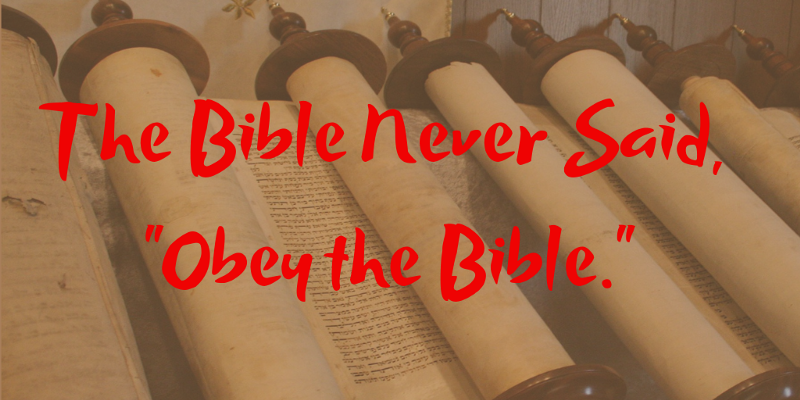
In “Healers with Dirty Fingers” the Three Failed Pastors caution the church.
Leaders in the church should be more concerned about the use of power than the use of porn. When they resort to worldly methods to gain compliance they become healers with dirty fingers.
“Healers with Dirty Fingers” Episode Notes:
The notion that we Christians must be free from the dynamics of control has urgent implications for the church.
A person who seeks to mold the behavior of others will always come under the sway of Satan. I’m not saying we shouldn’t want justice to be done. That desire is part of the divine image in us. Efforts to achieve it through interpersonal control become snake venom in our veins. They stroke our egos while blinding us to our faults. We confuse our personal ambition to be significant for concern for the “right.” Here’s what Jesus’ brother, James, had to say about the justice warriors in his church:
Who is wise and understanding among you? Let them show it by their good life, by deeds done in the humility that comes from wisdom. But if you harbor bitter envy and selfish ambition in your hearts, do not boast about it or deny the truth. Such “wisdom” does not come down from heaven but is earthly, unspiritual, demonic.
(James 3:13-15 NIV)
Can’t you just hear this guy complaining?
“I’ve got a lot of good ideas, but nobody listens because I’m not in the right clique.”
“I guess it’s about who you know, huh?”
“Why should we listen to _____? I’ve never heard him say anything remotely impressive.”
“They don’t want me in leadership because they know I’ll shake things up.”
We might not think James’ warning applies to us because we think we’re free from “envy and selfish ambition.” But what was the surface-level ambition of the people he was warning? Look at the next three verses:
For where you have envy and selfish ambition, there you find disorder and every evil practice. But the wisdom that comes from heaven is first of all pure; then peace-loving, considerate, submissive, full of mercy and good fruit, impartial and sincere. Peacemakers who sow in peace reap a harvest of righteousness.
(James 3:16-18 NIV)
Notice what James promises them at the end of this section – “a harvest of righteousness (actually “justice” in Greek).” James wrote this letter to Christians who wanted to apply their faith toward making their society fairer. They wanted to reap a harvest of justice, but we can’t plant justice in other people. That is, we can’t convince them they’re being unjust. Even if we can force them to behave justly, they will believe they’ve been treated unfairly and so injustice perpetuates. The only way to harvest justice is by planting peace. That will require us to retain a posture of humility even as we’re being treated unfairly. It’s a divesting of power back into the hands of God where it belongs. Christians don’t fight for justice because they become corrupt in the process. Instead, we absorb injustice in pursuit of peace trusting that justice will spring forth.
The Satanic voice doesn’t say, “Do evil,” but “How can you do nothing when everything is so bad?”
That was the voice Jesus heard in the mouth of his own dear disciple Peter:
From that time on Jesus began to explain to his disciples that he must go to Jerusalem and suffer many things at the hands of the elders, the chief priests and the teachers of the law, and that he must be killed and on the third day be raised to life.
Peter took him aside and began to rebuke him. “Never, Lord!” he said. “This shall never happen to you!”
Jesus turned and said to Peter, “Get behind me, Satan! You are a stumbling block to me; you do not have in mind the concerns of God, but merely human concerns.”
(Matthew 16:21-23 NIV)
Skeptics criticize Jesus for not doing more to alleviate suffering in the world because they assess Jesus according to worldly standards.
Jesus came to save us from the corrupt society by setting us free from the elementary principles of the world. He certainly wouldn’t have resorted to using them to make people do the right thing. In dying, Jesus divested himself of all human power. By ascending to heaven, he rules above the elementary principles of this fallen world. Hear Jesus’ words as quoted by John:
“They are not of the world, even as I am not of it. Sanctify them by the truth; your word is truth. As you sent me into the world, I have sent them into the world. For them I sanctify myself, that they too may be truly sanctified.”
(John 17:16-19 NIV)
When Jesus said he was going to sanctify himself, he meant that he would be set apart from this world. From heaven, he rules over the hearts and minds of each subject. As his subjects on earth, we reject the worldly principles and so are set apart as well. Christ’s disciples must never enslave one another under the elementary principles of the world because Christ has set his people free from them.
Healers with dirty fingers can’t offer pleasing worship to God.
Leaders must reject the temptation to resort to them for the “greater good.” Charisma can’t appear among the qualifications for leadership, not even the unwritten ones. Surely our insistence on “hip and cool” or “relevant” does a disservice to him of whom it was written:
He had no beauty or majesty to attract us to him,
nothing in his appearance that we should desire him.
(Isaiah 53:2b NIV)
People want to be accepted by competent and attractive leaders. That’s just the way of the world. You can build a church that way and it will probably become large. But it won’t represent the gospel of Christ and it won’t be predicated on faith. Worldly methods work, but they corrupt those who use them. No wonder scandal emerges from within so many megachurches and international ministries.
It seems to me the avoidance of these methods is at least part of what James meant when he said that pure religion includes keeping oneself unspotted from the world. It’s surely no coincidence that he goes on to forbid interpersonal favoritism beginning in the very next verse.
Religion that God our Father accepts as pure and faultless is this: to look after orphans and widows in their distress and to keep oneself from being polluted by the world.
My brothers and sisters, believers in our glorious Lord Jesus Christ must not show favoritism. Suppose a man comes into your meeting wearing a gold ring and fine clothes, and a poor man in filthy old clothes also comes in. If you show special attention to the man wearing fine clothes and say, “Here’s a good seat for you,” but say to the poor man, “You stand there” or “Sit on the floor by my feet,” have you not discriminated among yourselves and become judges with evil thoughts?
(James 1:27-2:4 NIV)
It’s my hope that anyone who attempts to employ the elementary principles in a church setting would come under strong conviction or that those under their leadership would offer them a loving rebuke.


